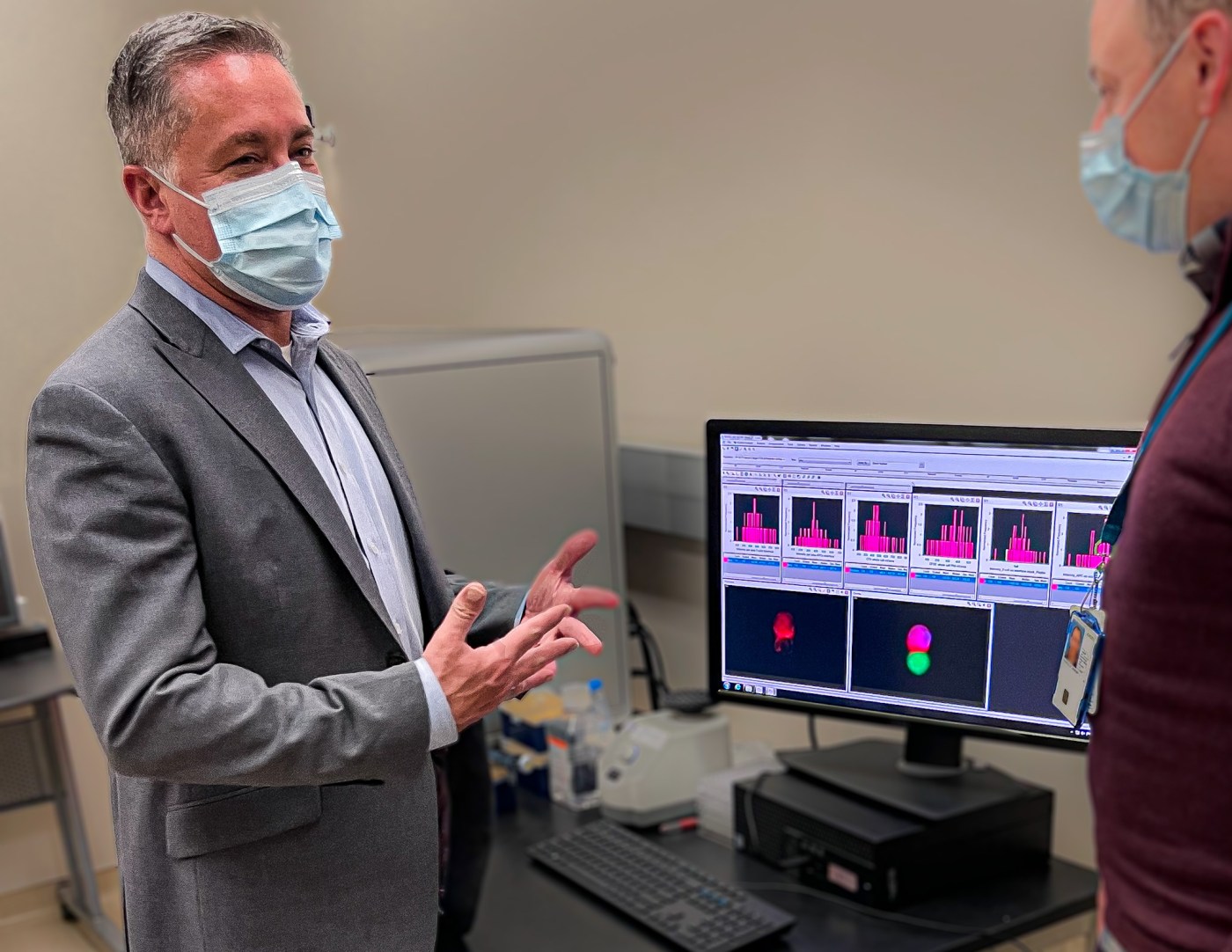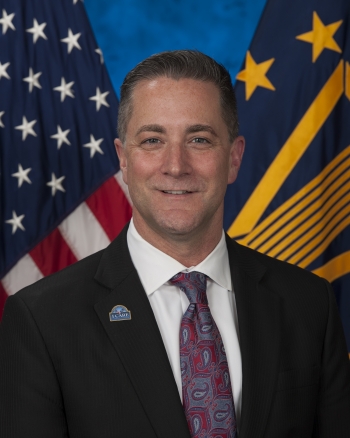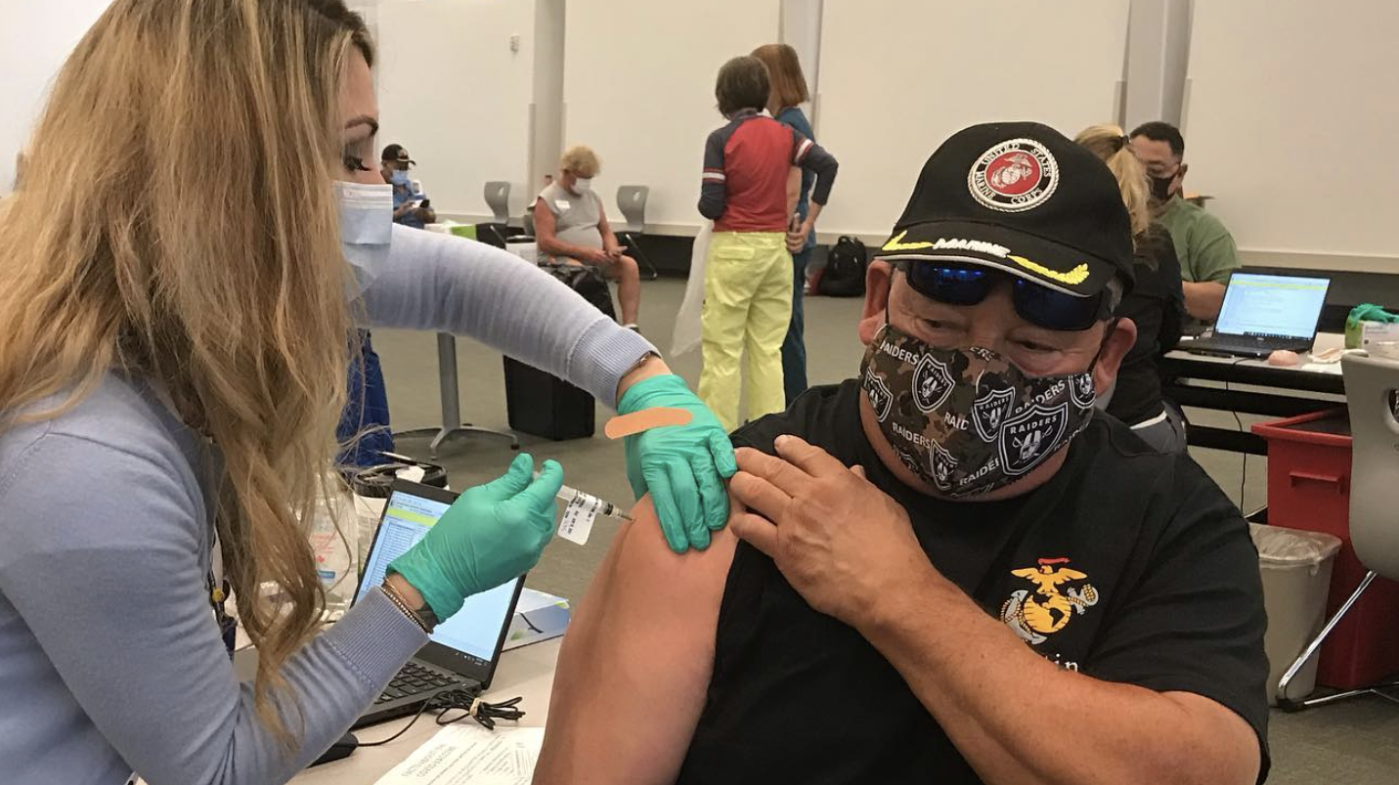After earning a master’s degree in social work and mental health from the University of Washington in 2004, Michael Kilmer began his first stint in VA at the VA San Diego Healthcare System. A Coast Guard Veteran, he worked there for four years, creating a nationally recognized care management program for post-9/11 combat Veterans.
In that role, Kilmer assisted Dr. Dewleen Baker, a prominent psychiatrist and researcher with a concentration in neuroscience. He evaluated transitioning Veterans by carrying out psychological and psycho-social assessments, and he co-authored studies led by Baker on mental health factors related to this population.
At the time, Kilmer recalls, Baker ingrained in him a philosophy that he takes to heart today as director of the VA Eastern Colorado Health Care System: Good clinical work supports good research, and good research supports good clinical work.
“They really are hand in glove,” Kilmer says. “She taught us about the importance of having the support of evidence-based assessment tools. By using these tools and documenting [the research] in our clinical work, we were able to produce some amazing literature. I’ve always seen the benefit of research and clinical working together. That’s been true my entire career. It saddens me when I see clinical and research being on opposite sides of the aisle, if you will. Everyone wins when they work together.
“In some facilities, I’ve seen a lack of understanding of one side of the house or the other,” he adds. “I’ve seen a lot of directors that put a priority only on access to clinical care. That’s incredibly short-sighted in the long run because clinical and research work together. You need the right balance. We have four missions: clinical, research, academic, and emergency management. They all need to work together.”
The motto that Kilmer acquired from Baker, who is now the research director at the VA Center of Excellence for Stress and Mental Health at VA San Diego, is one that she still upholds.
“I’m delighted that he took it up to that degree,” Baker says. “I’m thrilled that he has carried this forward because I think it’s critical for good clinical treatment. Michael has always been very friendly to research and finding a way to make it clinically useful.”
‘A second wave city’
Championing research is one of Kilmer’s fundamental priorities at VA Eastern Colorado, which employs more than 3,400 health care professionals. The hospital, which is based near Denver in the city of Aurora, also oversees one of the largest Veteran populations of any VA medical center – about 100,000 – in a region covering a wide swath of eastern Colorado and neighboring states. Plus, VA Eastern Colorado maintains one of the biggest annual budgets for a VA medical center, at $835 million.
Kilmer came to VA Eastern Colorado in September 2019, after serving in the same role at VA Grand Junction, a much smaller facility in the western part of the state. His orientation period at VA Eastern Colorado was relatively brief, before an emergency set in.
Toward the end of the holiday season, the World Health Organization learned of pneumonia cases from an unknown cause that were detected in Wuhan, China. Word subsequently spread about a mysterious virus rapidly taking hold in parts of the world, including the United States. Kilmer and his colleagues at VA Eastern Colorado closely monitored relevant developments in Italy, which became a hotspot for the novel coronavirus, as well as the port cities of New York and Seattle, where the first case of the COVID-19 was detected in mid-January.
Denver, Kilmer notes, was projected to be a “second wave city.” He and his staff developed a plan to convert from normal operations to potentially providing full COVID inpatient services, with a surge from 88 medicine, surgical, and ICU beds to 346. To realize such a sharp increase, he says, the hospital doubled up many rooms and reallocated other units, such as inpatient psychiatry and spinal cord injury.
More Information
Click here to read the full story.
Click here to read about VA’s research on COVID-19.
Click here to learn more about VA research.
Topics in this story
More Stories
Respiratory illness season is approaching. Vaccines can help protect from flu, RSV (Respiratory Syncytial Virus), COVID-19, and pneumococcal pneumonia. These vaccines are available free of charge to Veterans receiving care at VA.
In a new series that highlights advancements in VA health care, VA researchers and clinicians are appearing on a Veteran-themed media platform—Wreaths Across America Radio—to tout their critical work.
Recently published findings from the VA Disrupted Care National Project [...]







